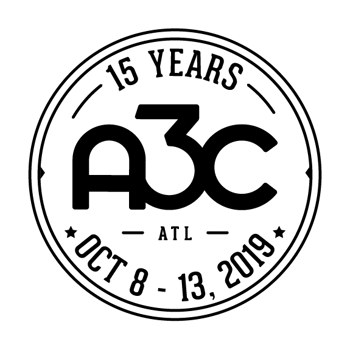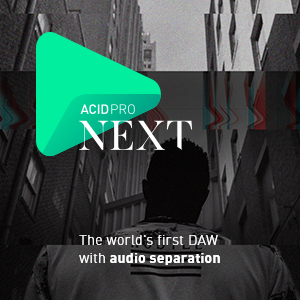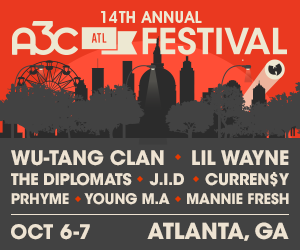
Hey, do you want to "get signed"?
Of course you do! That phrase has been thrown around so much in the past 50 years that it's crept heavily into our everyday talk. It's the subject of movies, it's the "prize" on reality TV shows and -- most importantly -- it's the "goal" behind hundreds of indie artists out there today. Probably even one of yours.
But what does "getting signed" even mean? It's become one of those phrases that's used so often that we just seem to "go with it" without genuinely realizing what it entails.
Getting signed is one of those industry terms that's used so much but it's also an incredibly vague term. Because dozens of "deals" exist. This becomes problematic because what happens when you do end up signing a deal?
Are you going to lose control of your assests and be in the same spot as: Wiz Khalifa, Lil' Wayne, Snoop Dogg, Ke$ha, Jeezy, Childish Gambino, Kid Cudi, Lupe Fiasco, Eve, 50 Cent, TLC, Silento, Clipse...
You get the point, right?
The above artists have all beefed with their labels for a variety of reasons -- whether it was because the label had control and held royalties over 100% of their merch/likeness, or the feud could have surrounded creative and release control, which ultimately delayed albums and damaged their brand.
These bad deals are often the result of new artists being thrown into a contract that they don't understand, because they're amazed at the hype of landing a major deal. But here's the secret:
A record deal could mean dozens of things. Not all deals are beneficial to your career.
Also... the internet does a lot of what a major deal could've done for you 10 years ago.
Thirty years ago if you wanted to record in a studio, you needed a record deal. (Get it? "Record" deal?) Because it was the only way you could afford studio time without breaking the bank. Today we have home studios, and affordable local studios on every block.
Similarly, if you wanted to get your CD in stores and on iTunes, you needed some form of distribution deal from a major label. Today, you can achieve the same success through CDBaby or TuneCore.
Lastly, if you wanted to get in magazines, and onto Late Night TV shows, you had to have some form of marketing deal with a label. These days, while a label marketing deal will have more media contacts than the average artist... you can still do a lot of work on your own, or even more with a solid publicist.
Around the dawn of the Napster era when file-sharing was king, you had labels develop the 360 deals to try to counteract online piracy. So now, instead of labels just making a percentage of music sales, they decided to develop a contract deal where they helped artist with the whole "360" of their career: merch, touring, promo, music and even licensing.
This way, you had a team helping you with every aspect of your artistry-- which gives you more of a probability for income. However, it also gave probability for labels to take a larger cut of your profit. For some artists, this works out great! However, for some -- it stunts further income streams and growth as a musician.
(Note: Not all 360 deals are equal. Some 360 deals are more or less aggressive than others.)
Most recently, Wiz Khalifa, sued his former management team for not disclosing that there were any other options other than a 360 deal availabile to him. This means he lost out on revenue from merch on his really marketable Taylor Gang merch as well as other income streams. The same deal is what infamously tied Ke$ha to record with her accused rapist, Dr. Luke.
So, if a major artist such as Wiz or Ke$sha are oblivous to layered deals, it might be smart to read up on the various deals available and use caution before inking anything.
While we will talk about the various types of record deals in a future piece with "Act Like You've Been Here", I want to focus on the fact that today -- it's 100% possible to do a lot of work on your own as a DIY artist, or an indie one.
I've worked with both major labels (and still do), but I've also worked with incredible indie labels, and DIY artist who are still working hustling their music online and on the road. All can be done correctly and done well. A major label can do good things for you, but so can an indie label, and of course-- you can do well on your own, too.
Deals exist that aren't going to take control of your entire creative output, but still give you a platform to be in front of fans. With the power of social media, and the resources available to artists, you can genuinely make some moves.
If you don't believe me, take it from these major artists below, who are still making huge moves as indie musicians.
But first.. let's talk about "indie".
Just like "signing a deal" is a fuzzy phrase, so is "indie artist". To be an indie artist, by definition, means that your label isn't operated or run by any of the major music groups: Sony, Universal, or Warner. However, it's not always so simple.
I would roll my eyes so hard back in 2012 when Macklemore would preach "we did this ourselves! People power!" when behind the scenes, he had a marketing deal with a Warner owned distro company. There's nothing wrong with this -- hell, my start in the industry was with a Sony owned distributor. But, it just shows the varying levels of the industry and various levels of come up-ness. (Plus, I always roll my eyes at Macklemore).
There a lot of deals that might be fueled by majors (indirectly or directly), but still help artists grow. This could be a distro deal, a marketing deal, a touring-based deal -- but regardless, yes -- you have a (often short-term or as-needed) partnership with a major. But you're still keeping a larger chunk of royalties and often, creative control.
This isn't selling out or being sneaky, it's a good way to adapt to today's climate. Plenty of incredible indie labels have distribution deals with companies that might be owned by majors. But hey, you have to distro your work somehow! Don't let this fool you, a distro deal with a major is good, and often quite hands-off.
So, now, let's talk about some indie artists and how they broke the mold, to secure a spot in the industry charts.
1. Migos

(Image via AudioMack)
Label: 300 Entertainment
Their Come-Up: 300 Entertainment is a major hub for indie talent, it's also distributed by Atlantic Records, and operated by the legendary Lyor Cohen. 300 also has investors in Google and partnership with Twitter. So despite being "indie", they're well funded.
This may or may not be a suprise to see Migos as indie acts, and we're going to see their labelmates on here often. However, the Atlanta group is 100% independent. Now, by no means are they struggling, as 300 Entertainment is one of the largest power houses in indie music.
The label (or as they often refer to themselves, an entertainment group), was founded by a genuine legend in the game, and they're distributed by a major label (Atlantic). Distribution deals typically just means that they're in charge of getting the music on iTunes, Spotify, Pandora and so forth. There could be some promotional aspects to it.
Does this mean they aren't "indie"? Nah. It just means that a major label is helping them get their work for sale in the right places while they "likely" get to keep a large portion of their profits and brand image. Of course, that's depending on whatever deal they have with 300.
300 is certainly indie by definition, which you'd assume means more open contracts for their artists, but regardless -- they're a powerhouse operating without any huge help from a major label.
What We Can Learn:
One, this shows that indie doesn't always mean "broke". 300 is an indie powerhouse that can help your career -- sure it depends on their contractual agreements with artists, but there exists large indie labels that can genuinely help artists.
Two, it teaches us that it's possible to land a "major deal" with a "non-major" label. From what we can see, Migos is still Migos. They weren't signed up and re-branded, and it appears that they do have a good deal of creative control over their work. The real look at 300 would be if we could see how much control they have over Migos, but at the end of the day -- I like to think they're taken care of well.
2. Tyler, The Creator

(Image via NME)
Label: Odd Future/RED
Their Come Up: Tyler used a combination of mixtape marketing and social media marketing (via Tumblr) to promote his work. Would he call it "marketing"? Probably not. But it was certainly done well enough to catch the eye of Pitchfork among a few other major music publications.
I like Tyler, The Creator's story because Odd Future genuinely are themselves. They were a group of highschool buddies, who's mixtapes popped up along with some great Tumblr and other online marketing that just...stood out.
We see this a lot in the age of the internet, we see artists that are themselves, and end up standing out because they are genuine in who they are. They aren't trying to be the run of the mill trap artist, or the trying-to-hard conscious rapper. They are just.. them. We saw this with Action Bronson, Danny Brown, Chance The Rapper, and a dozen of other artists you're probably picturing in your head.
Their come-up was genuine and their brand was marketable, even if they weren't trying to be. Tyler and Odd Future got their own label imprint under RED Distribution, which is a Sony company. However, they namely just handle their distro, and all things done under the Odd Future imprint are 100% Tyler and the guys. RED is also an artist developement company, that works with artists to develop their marketing. A lot more approachable and active in the indie scene than other major affiliated distributors.
What We Can Learn:
This shows us that you can genuinely succeed being yourself, and having a unique product. It also shows the power in media -- as a few major pick-ups really skyrocketed these folks to success.
We also need to learn that if signing a deal, let's ensure it's one that lets us keep and develop our own brand. Imagine if they signed to a deal that stunted their creative growth, or a label took a dangerously large cut of their merch profits -- or TV royalties, which would be pretty terrible considering their Loiter Squad TV show. Ensure you have a deal that allows you to branch out of music sales, and keep your brand how you want it to be.
3. T.I.

(Image via Wikipedia)
Label: Grand Hustle, Managed by Roc Nation
Their Come Up: This one isn't about "come up", it's about evolution. After beefing with Columbia, T.I. realized he already had the resources to create, distro and market is work on his own.
A music career includes the following: Recording, Distribution and Marketing. Period. That's it. When you already have a huge fan base, and a successful career (and money) -- why do you need a major label to help you throughout your entire career process?
T.I. ended up dropping Columbia records, and utilizing Roc Nation for managing his career as well as with distributing his work into digital stores and streaming platforms.
What We Can Learn:
Now sure, you likely aren't a music and film star like T.I., but if you have a fan-base, success and brand recognition -- you don't need to sign rights away to a label. You can pick, choose, and find the best route you need. It might just be distro, or it might be promotions -- you don't always need the full-suite.
4. Tech N9ne

(Image via BoomBox)
Label: Strange Music
Their Come Up: Tech had a unique style that had a legitimate underground following. How underground? We're talking mid-90's, pre-social media, following. The dude toured and grass roots made a following out of it. This was then further given life by partnering with Travis O'Guin to invest and create Strange Music.
You likely knew Tech was indie, but if you're an indie artist, it's time you took a second to really appreciate the grass roots efforts that Tech took on. In a world of artists paying for blogs, spamming links, and taking deals with shady promoters -- Tech actually did the work, rather than attempting to buy it.
He toured the country, had a unique style that appealed to rock and rap fans, and developed a very eclectic and unconventional brand.
Similarly, the Strange Music label, with Tech as their centerpiece and co-founder, genuinely is a indie music forcefield. They have a compound in Kansas City that directly handles distribution (to an extent) as well as marketing, PR and recording for their artists. Everything goes through Strange -- even their licensing and sales needs, all go straight to the Kansas City offices.
What We Can Learn:
We can learn that grassroots still works. This was also formed in a time before the internet, and only grew further at the influx of social media marketing methods. Can you imagine what you can do by creating a genuine, successful, live brand -- and then further execute it through social media? Sure, it takes detailed marketing, but the outcome would be straight up dangerous.
The maintakeaway here is to hustle and do work. Sure, you can pay for likes, you can pay to be on blogs, you can pay to open up for a major arist -- but god, that's just going to break the bank. You need genuine engagement, and the best route for that, is simply to be genuine with fans. Thank them on social media, interact with them, stay after the show to shake hands. That kind of small action goes a long way.
I was lucky enought to work on a project where the advisors were from Strange Music (though not a Strange Music project). It was incredibly seeing the work-ethic of Strange Music artists. Folks such as Tech staying after the show to shake every fans hand, is just what you need to create engaging super fans.
5. Chance The Rapper (you likely knew this, but let's revel in it).

(Image via MTV)
Label: Chance The Rapper, LLC
Their Come Up: A genuine social media backbone that helped propel him onto main festival stages, major media outlets and more.
So, the aforementioned "major distro deals", and "major promo deals" have led to a lot of wild conspiracy theories. They say that these artists are "fake indie" artists, or my favorite, that these guys are really "industry plants" that the industry uses to get fans onto a certain wave or style.
That's.. pretty much nonsense. I can tell you certainly that there's no conspiracy to Chance's success. He isn't secretly signed to a major label -- he is distributed through friend of A3C, Tunecore. If he has some form of marketing partnership it's pretty well underwraps. He also doesn't seem to have any other deals with majors.
However, despite this -- he just dropped some work that has numerous major-signed artist, is performing late night shows, and even got a deal with Apple Music.
I understand the theories that this is too good to be true.. but it isn't. Chance released an acclaimed mixtape online, and raised some great buzz in his backyard. This led to a series of music festival spots, and just some good networking to get in with larger artists. He also relied heavily on genuine blog and music publications to cover his music.
He owns the rights to his work, merch and music. This means that he genuinely is in complete creative control.
What We Can Learn:
That it's possible.
In a world dominated by shady promoters, and blogs that sometimes cover gossip more than music -- it's possible to make your work standout. It's possible to create a fan-base that stands behind your work. He does have business savvy, as each "win" was propelled to another one. For instance, he used blog post coverage to leverage more, got an XXL Freshman feature, and then furthered that into Bonnaroo spots and more.
It's possible to make it as an artist. Don't be discouraged. Chance's story is an important one, as artists need to hear that by having a genuine sound, a unique message, and by doing things on your own -- you can make some serious moves as an indie artist.
I hope you learned a little bit about being an indie artist, as well as what it means to "sign a deal" in this article. We'll discuss the ins and outs of deals in this column, but for now, research the above artist and see just how the indie scene is taking care of these guys.
If you ever need any assistance in deals, marketing or just to chat. Find me here.
Best of luck.



